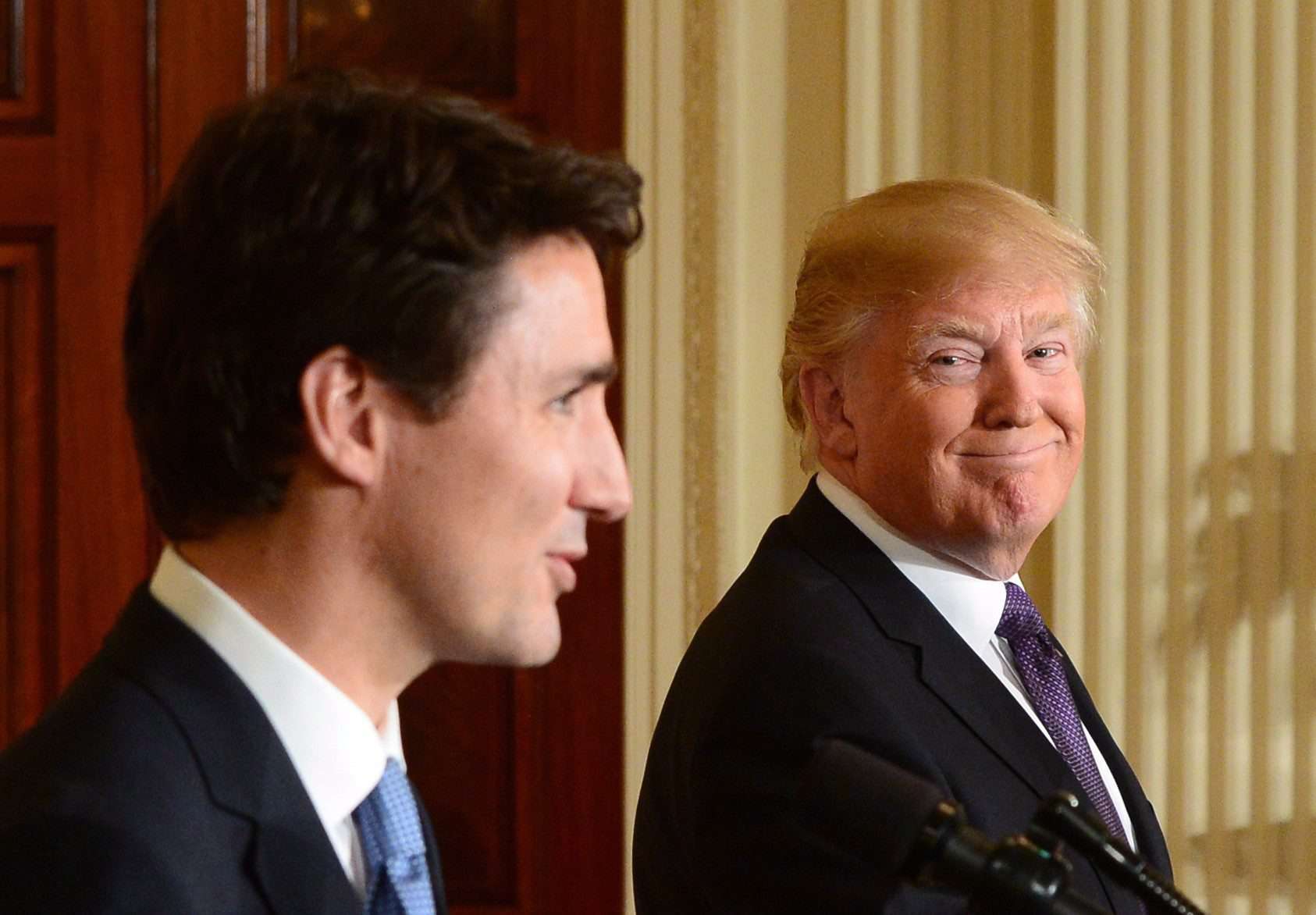Trump Targets NAFTA, But Will an 'Update' Just Be an Excuse for More Government Meddling?
Trump threatened to withdraw from NAFTA to get Mexico and Canada to the table, but there's no clear goal for negotiations.

President Trump's push on trade and NAFTA this week appears more motivated by the symbolic 100 day mark emphasized by Trump and the media than any coherent approach to trade neogtiations.
The Trump administration followed up the imposition of a 20 percent tariff on Canadian lumber—a long-standing stalking horse for the timber industry—earlier this week by floating the idea that the U.S. would withdraw from the North American Free Trade Agreement (NAFTA), which liberalized trade between the U.S., Mexico, and Canada. Shortly after, the White House announced that in phone calls with Canada's prime minister, Justin Trudeau, and Mexico President Enrique Peña Nieto, President Trump "agreed not to terminate NAFTA at this time" and that the two leaders " agreed to proceed swiftly, according to their required internal procedures, to enable the renegotiation of the NAFTA deal to the benefit of all three countries."
As Republicans alarmed by the prospect of a NAFTA withdrawal speculated yesterday, the threat was a "negotiating tactic" to bring Mexico and Canada to the table or otherwise extract a better deal. Yet there's little indication either Mexico or Canada needed such a push for new negotiations. The election of Trump, who campaigned on a protectionist platform that was one of a few principles he's held on to consistently for decades, sufficed.
The perception of bringing Mexico and Canada to the negotiating table over NAFTA can be chalked up as a victory, but it doesn't contribute to any clarity on what might happen next. Trump has not articulated what kind of "improvements" he wants to negotiate. His trade views are mostly based on the idea that foreign competition is bad, and that returning Americans to factory jobs would make America great again. The whole thing could just more noise signifying nothing, a tactic explained in the Art of the Deal.
Commerce Secretary Wilbur Ross told senators the administration was interested in "updating" NAFTA, not not withdraw from it, Sen. John Cornyn (R-Tex.) told Politico. Given the prevailing anti-trade mood in Washington, it's doubtful that such an update would involve reducing government interventions instead of increasing them.
The troubling migration of anti-trade rhetoric from left to right is nevertheless unsurprising. It's easier to convince people their problems are caused by foreigners than by their own government's policies, and more politically beneficial for those deploying such rhetoric in a quest for public office, especially when politicians who understand that free trade benefits everyone are unwilling or unable to articulate it effectively.
Related: Have Republicans Turned Against Trade? We Asked Them.


Show Comments (3)